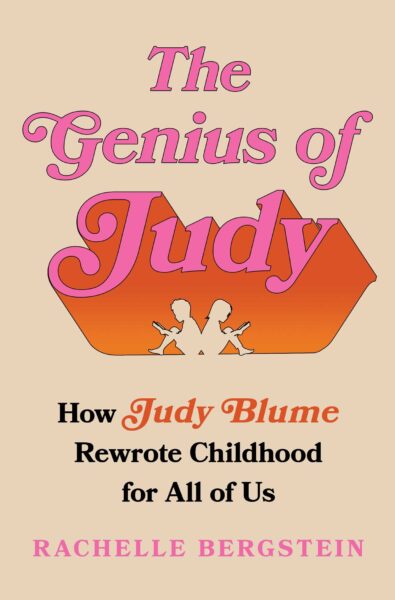In The Free Press, Kat Rosenfield contrasts her own teenage years with the situation faced by teenage girls today:
The Genius of Judy, a new book by Rachelle Bergstein, suggests that I was not alone in believing that Judy Blume was the ultimate source of knowledge on all things teenage girl. “Her characters and stories were more than just entertainment,” Bergstein writes. “They were a road map.”
Blume’s stories offered a powerful counterpoint to a culture that sought to limit women’s choices by surrounding their bodies and sexuality with shame and stigma — a culture that treated the lives of teenage girls as frivolous and insignificant. She spoke frankly and authentically not only of girls’ struggles but also, crucially, of their survival. She offered a glimpse of how beautiful life could be on the other side.
Are You There God? It’s Me, Margaret at once demystifies the bodily changes associated with the onset of puberty, and approaches the idea of becoming a woman with a sense of wonder. Her 1981 novel Tiger Eyes tackles loss, grief, and family upheaval — all of which shape its main character’s identity, but do not shatter her. Forever (1975) dares to tell a story about two teenagers who fall in love and have sex — responsibly, and without dire consequences.
Blume “taught young readers”, writes Bergstein, “that we were allowed to expect more from our lives than the women who came before us”.
I was struck, reading Bergstein’s book, that today’s youth may need Blume even more desperately than my cohort did. If the path to womanhood was once too taboo to talk about, today’s cultural landscape is flooded with narratives that make the entire enterprise seem like an unmitigated horror.
Puberty, rather than the exciting sign of maturity experienced by Margaret and her friends, has become a battleground for a gender ideology whose first response to a pubescent girl’s anxiety about her changing body is to suggest that perhaps she’s not really a girl. Meanwhile, the one-two punch of #MeToo followed by the fall of Roe v. Wade has fueled a consensus that to be a woman is to exist in a nightmarish state of perpetual physical vulnerability — if not to the torments of pregnancy and childbirth, then to the predations of men, who are of course written off en masse as “trash” by the pop-feminist commentariat. Dating and sex, in particular, are positioned as a minefield of traumas best avoided in favor of celibacy, which has been rebranded by Zoomers as a trendy new practice known as going “boy sober“.
The result is an entire generation of girls who are not just terrified of becoming women, but actively distressed by narratives that depict the process in a realistic way. One of the more interesting observations from The Genius of Judy is that Gen Z seems to have particular trouble with Blume’s Forever, in which the protagonist, Katherine, is wrestling with the question of when and whether to have sex, while her boyfriend Michael, who is not a virgin, is extremely and vocally in favor. Bergstein describes watching a TikTok in which the young female poster rants that “Michael is like a predator. This man pressures her so many times into sexual intercourse that I feel like she eventually just gave in.”
Bergstein sees this as a sign Forever hasn’t aged well. To me, it is a sign of how poorly today’s teenagers have been served by contemporary sexual discourse, and how badly they need Blume’s countervailing narrative. Forever articulates an important set of truths: that every girl approaches sexual readiness on her own timeline, that the desires of two individual people are rarely in perfect alignment, and that many, if not most couples have to negotiate that misalignment in the normal course of a relationship. In Forever, as in the real world, a girl can be at once desirous of sex but not yet ready for it — until, one day, she decides she is.
Having been a teenage boy in the 1970s, while I thought it was a bad suite of experiences (afterwards, with a bit of life perspective: at the time I thought it was hellish), it seems that teenage girls today are even worse off.




